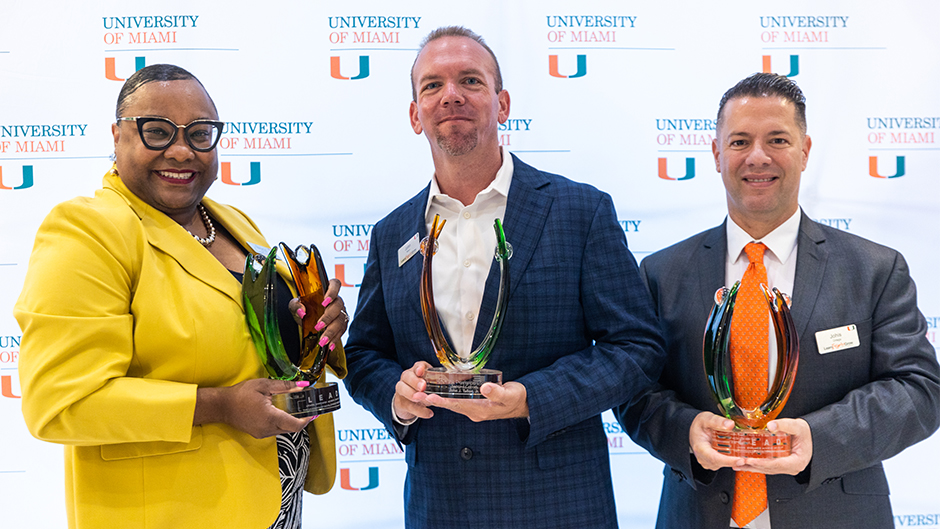After an enriching and dynamic 18-month journey of transformative development activities, a distinguished group of 28 leaders recently celebrated their graduation from the LEADership Development Program (LEAD).
These individuals were nominated by their executive leaders to participate in the second cohort of the top senior-level leadership program. As a group, the 28 graduates oversee 331 direct reports and a total of 675 faculty and staff members who indirectly impact thousands more across the University.
The LEAD program challenges participants to expand their self-awareness through a 360 assessment, disrupt existing patterns, and explore new ways of leading for organizational impact.
During the graduation ceremony, which took place on June 2, the University’s men’s basketball head coach Jim Larrañaga shared his thoughts on leading and creating the environment to build leaders. “Leadership is about creating a crystal-clear vision of what you want the team to accomplish,” Larrañaga noted. “It is our job to inspire our people to achieve far more than what they think they can accomplish.”
A panel of senior leaders, including President Julio Frenk; Alison Mincey, vice president and chief human resources officer; Jeffrey Duerk, executive vice president for academic affairs and provost; and Rudy Fernandez, executive vice president for external affairs and strategic initiatives, and chief of staff, surprised graduates by turning the tables and asking them questions. The graduates shared their experiences during the program.
“The LEAD program has allowed me to bridge the functional roles between the academic and operational sides of the University,” said John Tallon, executive director of facilities operations and planning when asked by Fernandez to point to a relationship gained through this experience. “I have gained insight from individuals in faculty administrative roles on how they operate and better understand what they do.”
Berthi Hotham, assistant vice president for enterprise business solutions for financial affairs, responded when Mincey asked the group to discuss the skills or tactics they have learned and have found most impactful.
“There was a session in the program on civil engagement and philanthropy that discussed double-dipping as a way to increase family time while also achieving other professional objectives,” said Hotham. “With young kids at home, I have felt limited on my time for community service. Using the tips provided during the session, I invited my kids to do their own fundraising for the Dolphin Challenge Cancer. They knocked on doors and practiced their communications skills and math while learning about community service. Using double-dipping at work and in my personal life has taught me to leverage my time more effectively.”
As this new group of graduates moves forward in their leadership journey, the desire for continued growth remains at the forefront. The participants understand leadership is not a stagnant endeavor. As the University evolves, so must its leaders to lead the way into the new century.
The U is committed to developing its leaders and staff. Explore professional and leadership development opportunities available to our entire workforce.

